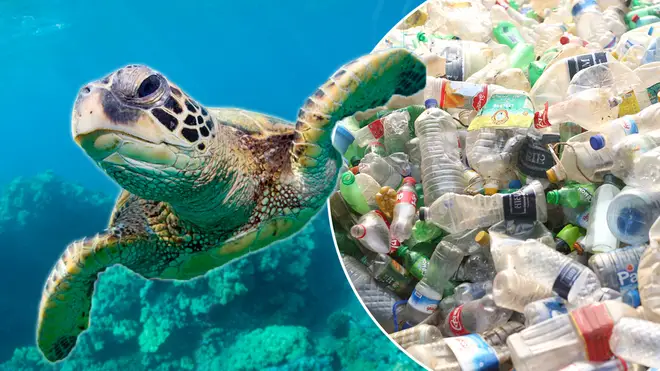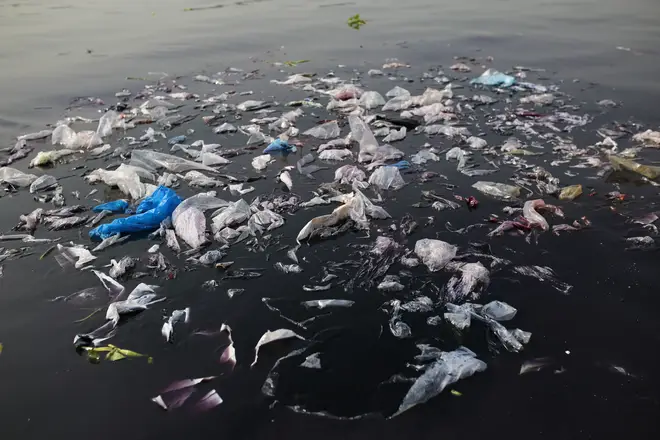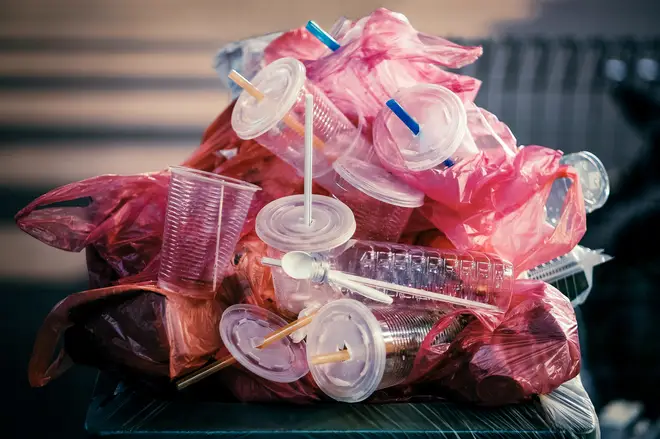On Air Now
Heart's Club Classics with Pandora Christie 7pm - 11pm
22 May 2019, 16:52 | Updated: 22 May 2019, 17:34

Experts have warned that single-use plastic is damaging marine life beyond repair.
The government announced that all plastic straws, drink stirrers, and cotton buds will be banned from sale in England from next April.
A move to more sustainable materials has been in the pipeline for more than a year, with experts hoping to reduce waste and cut down the impact one-use plastic is having on our oceans.
But with environmental campaigners warning this will “only scratch the surface” in tackling the damage non-degradable products are doing to the environment, how much of our plastics really end up in the sea?
It’s thought that between 4.8 and 12.7 million tonnes of plastic end up in the ocean each year, according to the journal Science published in 2015.

That means there are around 150 million metric tonnes currently circulating our marine environments.
Read More: Plastic straws, cutlery and cotton buds will be banned in the UK from next year
As a result of this, more than a million birds and over 100,000 sea mammals are killed by getting tangled in the waste or accidentally eating it every year.
A recent report - published by the Government Office for Science - also estimates the quantity of plastic in the sea will treble in the next six years if drastic action isn’t taken.
While larger items such as water bottles and cotton buds often end up in the sea instead of landfill, identifiable items or microplastics - pieces under five millimetres in length - also litter waterways all over the world.
Following the hugely successful plastic bag law in 2015 - which requires large shops in England to charge 5p for all single-use plastic carrier bags - environment secretary Michael Gove confirmed the government’s latest initiative to target climate change.
From April 2020 all plastic straws, drink stirrers, and cotton buds will be banned. This means that food and drink outlets will no longer be able to display plastic straws, or hand them out to customers. However, this doesn’t apply to those who need them for medical reasons.
UK residents will also still be able to purchase wooden stirrers and biodegradable cotton buds which have paper stems.
While the straw itself was patented for the first time all the way back in 1888 by American inventor Marvin Stone, these were originally made from strips of paper glued around a pencil.
Read More: Plastic pollution 'killing one person every 30 seconds' in developing countries

By the mid 1900s plastic straws quickly became cheaper and more durable than their paper equivalents and by the second world war, factories began churning out consumer plastics.
But the straw really took off alongside the huge growth of the fast food industry after manufacturers realised the plastic lids on to-go cups tore their paper straws.
Food giants such as McDonalds and Coca Cola soon caught on and began serving their cold drinks in disposable cups with plastic straws.